
Get Your Free 1st Issue
Your Homes Overseas Magazine!
Discover the best destinations, property tips, and lifestyle insights from around the world.
GET YOUR FREE MAGAZINE HERE!

Discover the best destinations, property tips, and lifestyle insights from around the world.
GET YOUR FREE MAGAZINE HERE!

The cost of living in Portugal makes it a top choice for expats and retirees seeking a balanced lifestyle. On average, a single person can live well on €1,285–€1,500 monthly, while families may need €2,700–€3,000. Costs differ by city, with Lisbon and Porto being more expensive than smaller towns. Before planning a move, learn more about where is Portugal to understand its setting.
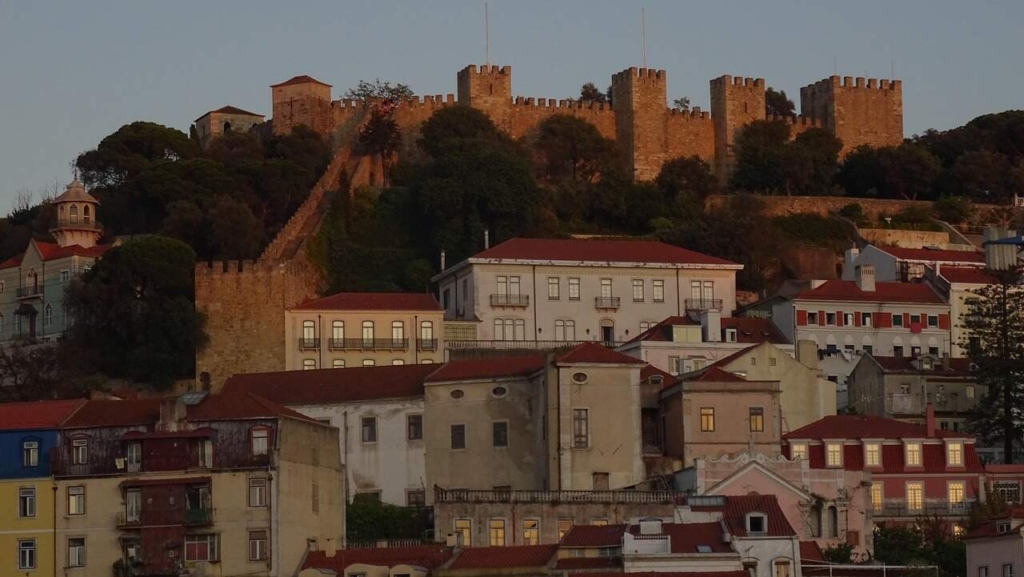
Housing is often the biggest part of the cost of living in Portugal. Prices vary by city, property type, and demand. In Lisbon, a two-bedroom apartment in the city center can cost €1,200-€1,500 per month, while similar properties in Porto range from €1,000-€1,300. Smaller towns like Braga or Coimbra are much more affordable, with rents closer to €700-€900.
Renting is a common choice for expats and students who want flexibility. Shared accommodation is more budget-friendly, costing €400-€550 per room. For a better overview of the market, you can explore rentals in Portugal which list both short-term and long-term options.
For long-term residents or investors, buying can be a smart decision. Property prices have increased in recent years, especially in popular coastal areas. To learn more about options, see housing in Portugal for insights into local markets. If you’re ready to take the next step, check property for sale in Portugal and the complete guide to buying property in Portugal for detailed advice.
For expats planning a permanent move, understanding visa and residency in Portugal is just as important as comparing housing costs, since residency affects your ability to rent or buy.
Utilities are an essential part of the cost of living in Portugal and should be included in every monthly budget. For a medium-sized apartment, expect to spend €200-€250 per month on electricity, water, heating, cooling, and garbage collection. Costs rise during winter for heating and in summer if you use air conditioning.
Electricity is the biggest utility expense in most homes. Since natural gas pipelines are not common everywhere, many households rely on bottled gas cylinders, costing around €30-€35 each. Water and waste services are relatively affordable compared to other European countries.
Portugal offers reliable high-speed internet at competitive prices. A broadband package costs about €30-€50 per month, while mobile phone plans with calls and data average €15-€25 monthly. Bundled packages that combine internet, TV, and mobile often provide extra savings.
Utilities may seem small compared to rent, but they add up quickly. If you’re researching relocation or comparing housing costs, platforms with international property details can give you a clearer picture of overall expenses, including utilities and internet.
In short, utilities and connectivity in Portugal are affordable and stable, making it easier for expats and families to plan their budgets with confidence.
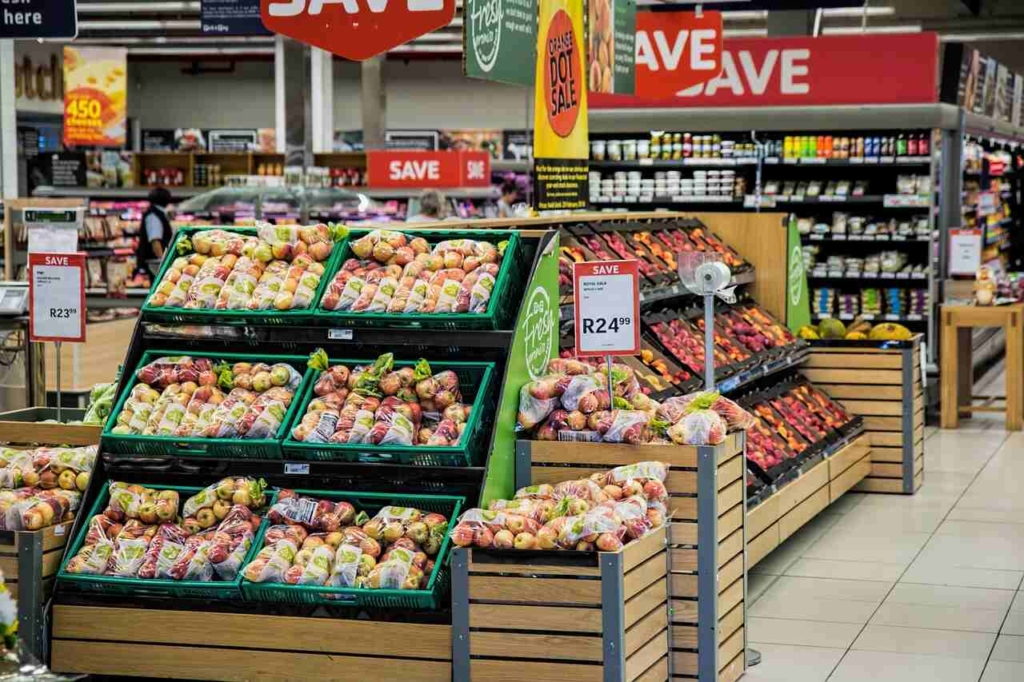
Groceries form a steady part of the cost of living in Portugal, but the country offers a balance of affordability and quality. On average, a single person spends about €250–€300 per month on groceries, while a family may need around €500–€600.
Portuguese diets rely heavily on fresh produce, fish, bread, and olive oil, which are often cheaper than imported goods. Typical prices include:
Supermarkets such as Pingo Doce, Continente, and Lidl are widely used and offer fair prices. However, many locals prefer shopping at municipal or village markets, where seasonal fruits, vegetables, and fish are fresher and often less expensive.
Local products, like Portuguese wine, olive oil, and sardines, are affordable and high quality. Imported brands, international snacks, and specialty products tend to be more costly, which can push monthly grocery bills higher if purchased regularly.
In summary, grocery prices in Portugal remain manageable, and with smart shopping at markets and supermarkets, both singles and families can enjoy a healthy Mediterranean diet without overspending.
Transportation makes up another part of the cost of living in Portugal, with expenses depending on location and lifestyle. City residents often rely on public transport, while rural residents may need a car.
Portugal’s public transport system is affordable and reliable. In Lisbon and Porto, a single metro or bus ticket costs €1.50–€2.00, and a monthly pass ranges from €40–€50. Regional trains also offer inexpensive travel between nearby cities, making it easy to commute or explore.
Owning a car adds convenience but also higher monthly costs. Petrol averages €1.70–€1.90 per liter, making fuel one of the bigger expenses. With insurance, parking, maintenance, and road tax, owning a car can cost €200-€300 per month. This makes it less practical in cities with strong public transit options.
Taxis are available in most urban areas, starting at €3.50 plus €0.50 per kilometer. Ride-sharing services like Uber and Bolt operate in Lisbon, Porto, and the Algarve, and are usually cheaper than traditional taxis for short trips.
Expats and locals save money by using monthly transport passes or discount cards. For those living outside major cities, car-sharing and ride-hailing apps can reduce the high costs of full car ownership.
In summary, transportation costs in Portugal are manageable. Public transit is the best value in cities, while cars are a bigger commitment for rural living.

Healthcare is an important factor when planning the cost of living in Portugal, and the country offers both public and private options. Residents have access to the public system, while many expats also choose private care for faster service.
Portugal’s national health system, the Serviço Nacional de Saúde (SNS), provides low-cost care to residents. General practitioner visits, emergency care, and some prescriptions are subsidized, making it one of the most affordable systems in Europe.
Private healthcare offers shorter wait times and access to more specialists. A private consultation usually costs €30–€60, while premium health insurance ranges from €150–€200 per month depending on age and coverage. Expats who want peace of mind often rely on private plans to complement the public system.
Many residents combine both systems, using public healthcare for routine services and private insurance for specialized treatment. This approach keeps costs lower while ensuring access to timely care. If you are considering a move, it’s helpful to review guides about healthcare in Portugal to understand how both systems work.
In short, healthcare and insurance in Portugal are relatively affordable compared to other Western European countries, making it easier for singles, families, and retirees to manage their monthly budgets.
Leisure and lifestyle choices add another layer to the cost of living in Portugal. While housing and groceries form the essentials, entertainment, dining out, and cultural activities shape daily life and influence monthly budgets.
Eating out in Portugal is affordable compared to other Western European countries. A simple restaurant meal costs €10-€15, while mid-range dining with drinks can be €25-€30 per person. Cafés and bakeries are a central part of Portuguese culture, with coffee and a pastry often under €3. To learn more about local customs, exploring tradition in Portugal can give you insight into how culture connects with daily living.
Cinema tickets cost around €7-€10, gyms range from €30-€50 per month, and live events or concerts can vary depending on the city. Portugal also offers free or low-cost leisure options such as public beaches, festivals, and open-air cultural events. For newcomers, checking out fun facts about Portugal can help highlight the unique lifestyle opportunities that influence living costs.
Portugal is a compact country, so weekend trips are popular and affordable. Regional trains and buses allow easy travel to coastal towns, wine regions, and historic sites without breaking the budget.
In summary, leisure and lifestyle in Portugal are both affordable and rich in cultural value. Whether enjoying cafés, fitness, or festivals, these activities add between €600-€800 per month for a couple or small family.
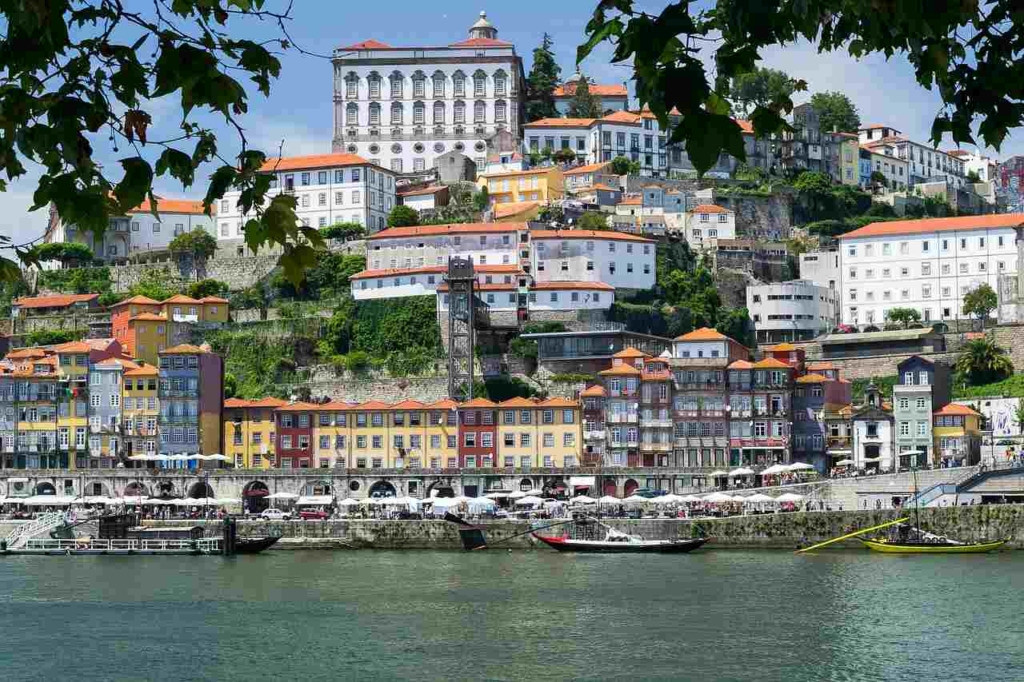
The cost of living in Portugal can vary greatly depending on the region. Big cities, smaller towns, and coastal areas all have different price points for housing, food, and lifestyle.
Lisbon is the most expensive city in Portugal. Rent for a central apartment can exceed €1,200-€1,500, and dining or entertainment also costs more. It attracts professionals, digital nomads, and tourists, which drives up prices.
Porto is slightly cheaper than Lisbon but still one of the pricier cities. A two-bedroom apartment costs €1,000-€1,300, and monthly expenses are a bit lower. Many expats prefer Porto for its balance of culture and affordability.
Cities like Coimbra and Braga are far more budget-friendly. Rent can drop to €700-€900 for similar apartments, while groceries and transport are also cheaper. For those who prioritize savings without giving up quality of life, these areas are excellent choices.
The Algarve is mixed. Tourist-heavy coastal towns are expensive, especially during high season, while inland towns are more affordable. Retirees are drawn here for the climate and lifestyle. If you are planning a move, exploring retirement in Portugal will help you compare regional differences in cost with long-term living considerations.
In short, while Lisbon and Porto demand higher budgets, Portugal’s smaller towns and inland areas offer significantly lower living costs, making them ideal for retirees and families. Climate also plays a role in choosing where to settle, and exploring the weather in Portugal can help you decide which region matches your lifestyle and budget.
The cost of living in Portugal is affordable compared to many Western European countries, but you can save even more with the right choices.
Renting a room in a shared apartment can cut housing costs by almost half. If you are planning a long-term move, learning about visa and residency in Portugal will help you secure the right documents and find cheaper housing options available to residents.
Shopping at local markets instead of supermarkets reduces grocery bills. Seasonal fruits, vegetables, and fresh fish are high quality and cost less.
Rely on public transport in cities like Lisbon and Porto. Monthly passes cost less than owning a car, which adds expenses for fuel, insurance, and maintenance.
Enjoy free or low-cost cultural events, outdoor festivals, and Portugal’s many beaches. These activities are part of the lifestyle and don’t strain your budget.
In summary, smart housing choices, market shopping, and public transport make Portugal even more affordable without compromising on quality of life.
The cost of living in Portugal is affordable compared to many Western European countries, but it varies depending on lifestyle and location. Singles can live comfortably on about €1,285-€1,500 per month, while families may need €2,700-€3,000. Housing remains the biggest factor, followed by groceries, utilities, and transport.
For expats planning long-term stays, exploring visa and residency in Portugal is essential. If you’re considering buying instead of renting, resources on property for sale in Portugal can help you understand market options. Combined with knowledge of retirement in Portugal, these insights show how to align your budget with your lifestyle goals.
In summary, Portugal offers a balanced mix of affordability, quality healthcare, cultural richness, and modern convenience, making it an attractive choice for expats, retirees, and families alike.
A single person needs about €1,285-€1,500 per month, including rent, groceries, transport, and utilities.
A family usually spends €2,700-€3,000 per month, depending on lifestyle and location.
Yes. Portugal is more affordable than the UK, Ireland, or France, though costs are higher than in Eastern Europe.
Shared rooms cost €400-€550, while a central two-bedroom apartment ranges from €1,000-€1,500 in Lisbon or Porto.
Groceries cost around €250-€300 for a single person and €500-€600 for a small family each month.
Expect to pay €200-€250 for utilities and €30-€50 for internet per month.
Public transport passes cost €40-€50 monthly, while car ownership averages €200-€300 per month.
Public healthcare is low-cost, while private insurance ranges from €150-€200 monthly.
Yes. Lisbon is the most expensive, Porto is slightly cheaper, while towns like Coimbra and Braga are more affordable.
Yes. Using public transport, shopping at local markets, and choosing smaller towns make the cost of living in Portugal very budget-friendly.
About International Property Alerts
International Property Alerts is a premier global platform connecting real estate investors with handpicked opportunities in emerging and lifestyle-driven markets. Through curated listings, expert guidance, and market insights, we help buyers make confident property decisions worldwide.
Media Contact:

Phone: +4477 1923 8132
📱 WhatsApp: +63927 073 9530
Email: office@internationalpropertyalerts.com

Elle Resort & Beach Club offers a rare chance to own property in one of the most desirable coastal locations. With limited units, strong capital growth potential, and unmatched resort facilities, this is your opportunity to secure a beachfront lifestyle with long-term value.
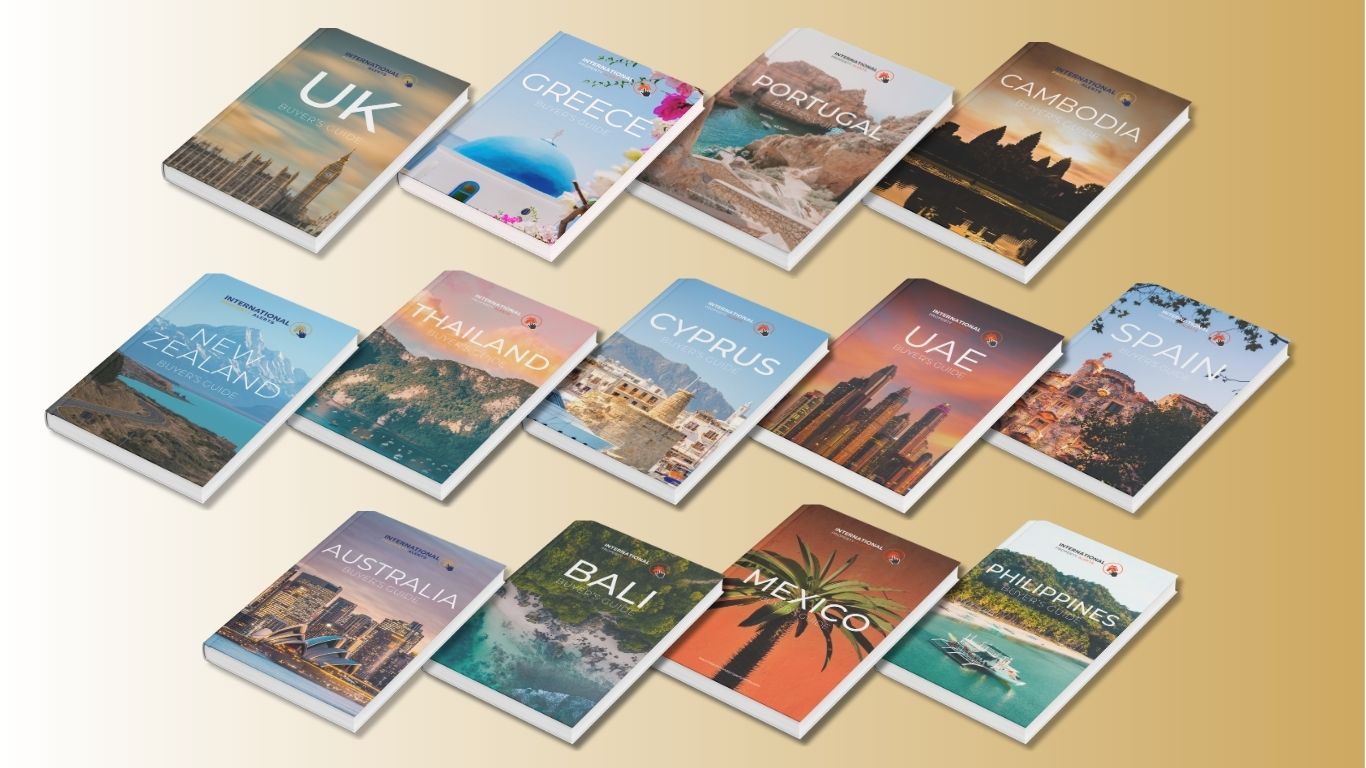
Thinking about buying property abroad? Don’t make the move without the right knowledge. Our Free Buyers Guide gives you essential insights on legal steps, taxes, financing, and the best markets worldwide. Trusted by international buyers and investors.

Wake up to bright, spacious living with stunning views and modern comforts. Whether for family living, retirement, or a stylish retreat, Sudara Residences makes your dream home a reality
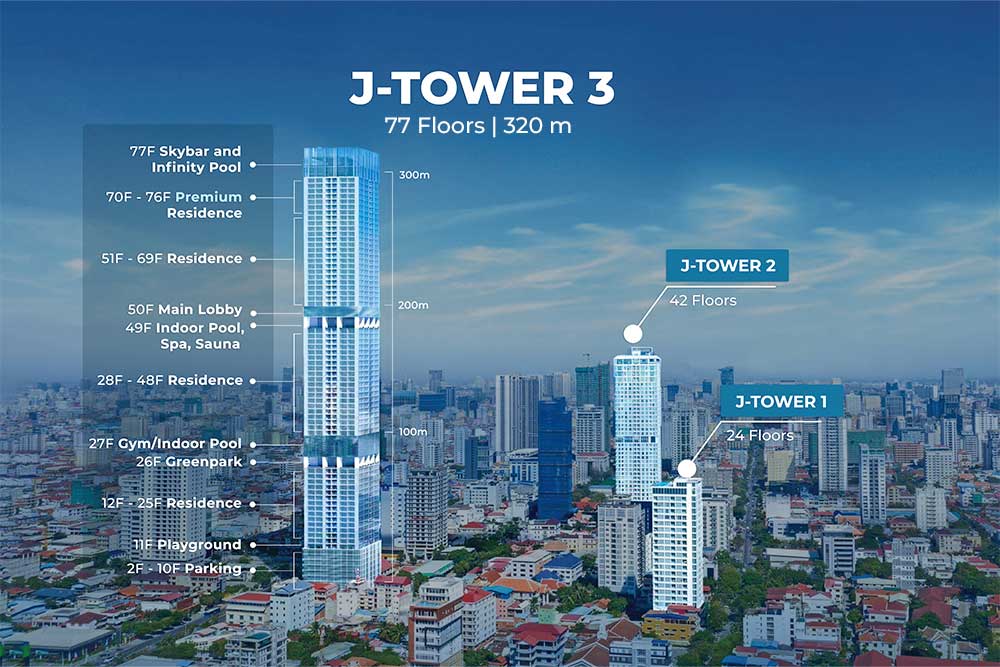
Discover curated property listings with IPS—residential, commercial, villas, land—and get expert guidance through every step.
BONUS: FREE Cambodia Buyer’s Guide

High visibility. Targeted audience. Maximum exposure. Rent this space and let your brand shine.

Get your properties in front of high-intent investors. Showcase your listings to buyers worldwide.

From pounds to pesos, yen to dollars. ⚡ Quick. Easy. Secure.
Compare listings
ComparePlease enter your username or email address. You will receive a link to create a new password via email.